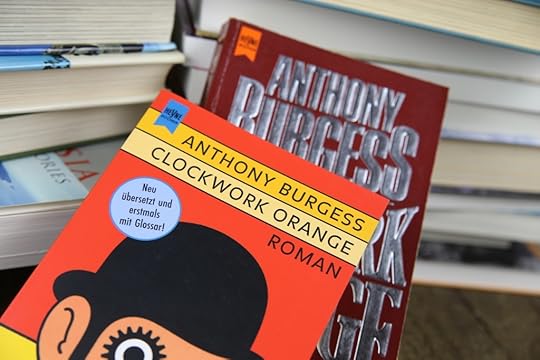Droogs, telephony and, yes, bar ditches
 Milkbars, but no bar ditches
Milkbars, but no bar ditchesMy post on bar ditches generated a lot of response on various platforms. The consensus was that I was right to use the term, though some people suggested I should have defined it. Honestly, I didn’t think about defining the term when I used it, and even when my editor suggested people wouldn’t know what it was, I was unmoved.
When you’re introducing readers to a place they aren’t familiar with — and by that I mean the fictional world of your story — it adds a bit of mystery to throw out unusual terms. You have to do it sparingly, of course, otherwise it’s just becomes confusing.
But as a reader, you’re jumping into this world; it’s not going to stop for you. That, by the way, is how the real word works too. Move to a new place or start a new job, and you have to learn how things are done there, or you have to pick up on the unique customers or language that helps define the place.
The first time I read Anthony Burgess’ A Clockwork Orange (the American version), I just jumped in. I “learned” Nadsat, the Russian-influenced English slang spoken by the gangs from the context. Only when I finished it did I discover that the publisher had put a helpful glossary at the end, defining all the terms.
But to this day, I’m glad I didn’t know it was there. Part of what Burgess wanted to achieve was a sense of alienation. The language barrier created a distance with the characters and may even have helped make them more palatable to readers, who typically might not have identified with youthful murders and rapists, let alone cheered for them to be able to continue murdering and raping.
Of course, The Big Empty is tamer fare. We have bar ditches, gimme caps, and the occasional bois d’arc tree, and there’s some tech jargon like telephony, but for the most part, it’s written in plain English (I hope).
I should also note that fiction differs from nonfiction in this regard. For nonfiction, it can be completely appropriate to define terms as they’re introduced. You can also use footnotes or a glossary. In fact, I added a glossary of ship terms to The Man Who Thought Like a Ship, which a number of readers said they found helpful. (That glossary was actually my father’s. I used an abridged version from his textbook Wooden Shipbuilding and the Interpretation of Shipwrecks. I was able to do that because we had the same publisher.)
I know why I made the decisions I made on the language in The Big Empty, but from a reader’s perspective, how do you feel about coming across unfamiliar terms? Is it off-putting, or does it make you feel like you’re listening into to a conversation?



